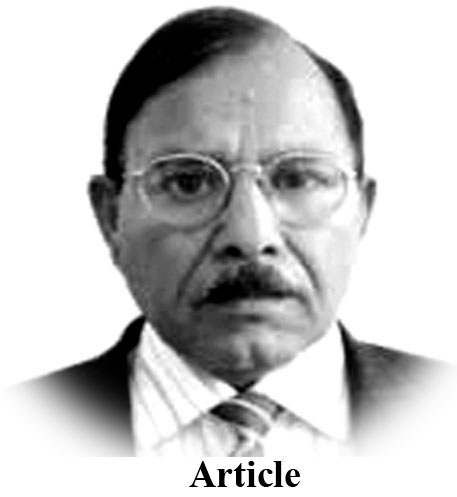Malik Ashraf
IN conformity with the best traditions of an Islamic
welfare state, Prime Minister launched the Ehsas
Saylani Langar Scheme in Islamabad last week in collaboration with Saylani Trust. The scheme is part of the Ehsas Programme of the government under which 112 such langars (Soup Kitchens) will be set up throughout the country to combat hunger. Each soup kitchen will have the capacity to provide hygienic food to 6oo people. Hunger, poverty and economic inequalities in a society can have serious social and political repercussions to the extent of destabilizing the state itself. That provides the rationale for most of the modern states laying more emphasis on poverty alleviation and providing safety nets for the poorer sections of the society. Article 38(d) of the Constitution says “the State shall provide basic necessities of life, such as food, clothing. housing, education and medical relief, for all such citizens, irrespective of sex, caste, creed or race, as are permanently or temporarily unable to earn their livelihood on account of infirmity, sickness or unemployment”.
The social safety and poverty alleviation programme launched by the PTI government in the name of ‘ Ehsas’ is the first ever all encompassing effort to mitigate the sufferings of the vulnerable sections of the society purported to cover the areas identified in Article 38 (d). The programme envisages to give saving accounts and mobile phones to 5.7 million women which will enable them to access their bank accounts; increase in cash transfers to women from Rs.5000 to Rs.5500; creation of 500 digital hubs at Tehsil level where poor people could go to access their bank accounts as well as look for jobs; arranging legal assistance for the poor in difficult times; setting up call centers to provide legal assistance to the people as well as grants to children who want to study; organizing money by the Tahafaz programme office for the people needing medical help who do not already possess Insaf health cards; building of shelter homes for the homeless; assisting street children through public-private partnership as well as helping transgender persons who suffer maltreatment in the society; facilitation of the daily wage workers through Tahafuz programme and initiating a movement against forced work from children under bonded labour; building of homes for one hundred orphanages through Baitul Mal in the next four years.
The programme further envisages initiation of policies to address nutrition problems purported to provide de-worming , iron, frolic acid as well anemia supplements at basic health units; creation of multi-sectoral nutrition coordination body at Prime Minister’s office for the purpose; provision of goats to women in the rural areas as well as desi chicken so that their children can have access to milk besides generation of some income; provision of seeds to rural women for growing vegetables to eat and sell; provision of special sticks, wheelchairs, crutches for disabled persons; setting up of 20 centers for disabled persons in the less developed areas; earmarking of Rs 5 billion for giving interest free loans to the poor who are too poor to build their own houses; increase in the EOBI pensions; building of five Ehsas homes for elderly people by Baitul Mal; creating awareness among the students from the underdeveloped areas about their constitutional right to receive education and provision of vouchers to the intending students of the areas where there are no government schools so that they can attend private schools; provision of internet service and mobile phones to the students from the remote areas so that they can benefit from e-learning; setting up of one-window operation for the labourers wanting to go abroad and posting of welfare attaches in all the embassies of Pakistan overseas to facilitate the Pakistani labourers; ending exploitation of labourers and workers in the villages and in the informal sector and employed as domestic workers by bringing them into the formal sector to protect their rights besides introducing a data-based pension scheme for them.
An incisive glance on the envisaged programme reveals that it is not only designed to help the poorer sections of the society and the needy but is also meant to elevate the people above cash payments and enable them to acquire skills and sources of incomes for themselves. The government envisages to enhance the allocation for the programme from Rs.60 billion to Rs.120 billion by the year 2020. With a view to making it a one-window operation and to coordinate the implementation of the programme a separate ministry for social protection and poverty alleviation is being set up. The move is designed to bring all the organizations working on helping the poor, under one umbrella. To ensure transparency and efficiency the Government is collecting required data through the help of the already conducted surveys and the new ones making use of the available modern technology.
Ostensibly it looks a very ambitious undertaking but as they say where there is a will there is a way. The concept propounded by the government is beyond reproach. The programme is unprecedented as far as its envisaged wholesome impact and reach is concerned. It also assumes uniqueness in the sense that as revealed at the time of its launch by the Prime Minister, the government is going to include these activities in the chapter of fundamental rights of the Constitution by amending the Article 38(d) which confers only recommendatory responsibility on the Government. Once it becomes part of the fundamental rights as enunciated in the Constitution it would become obligatory for every government to shoulder that responsibility. Ehsas is indeed a revolutionary initiative for poverty alleviation and enabling vulnerable sections of the society to earn their own living.
— The writer is freelance columnist based in Islamabad.









